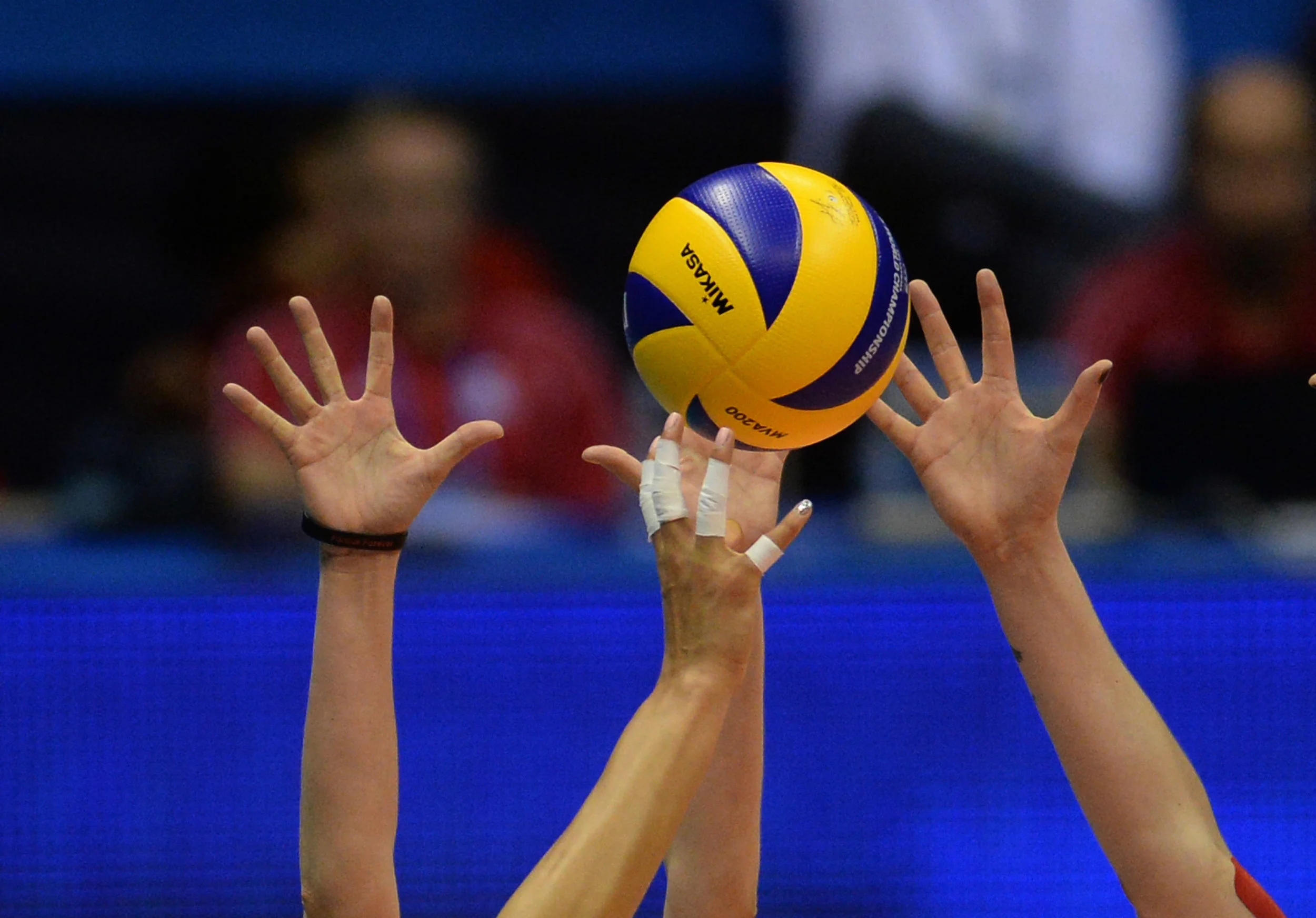Volleyball Players: Why Strength Train?
 Mariah Bruinsma and Rosie Schlagintweit of The UBC Thunderbirds
Mariah Bruinsma and Rosie Schlagintweit of The UBC ThunderbirdsEditor's Note: This is the first in a series of strength training articles written specifically for volleyball players. Ryan Jobs B.H.K. of Coastal Fitness prepared this series with his staff and we will be posting new articles every week starting in the new year. Ryan has worked with and developed programs for volleyball players in both the CIS and CCAA. Let us know what yout think of the articles. You can contact Ryan directly on the Coastal Fitness website, or send us a message on our contact page.
When you think of a strong athlete, what comes to mind? On many occasions, strength training
in sports is associated with bodybuilders and strength-based athletes, such as a shot putters,
weightlifters, or football players. What you are probably not envisioning is a 6’9’’ elite volleyball player
just breaking 200 pounds. After all, “tree trunk” thighs and “pythons” for biceps are not benefitting any
volleyball player, as demonstrated by how ineffective Arnold Schwarzenegger would be as right side
hitters. As a result, for those who may not have a full understanding of strength training and its effects,
benefits, and role in sport, this may beg the question of why volleyball players should even bother
venturing into the weight room at all. This article introduces three key reasons why volleyball players
should not just consider it, but make it a priority to commit themselves to resistance training.
Strength and Power
A general principal that guides strength and conditioning for all sports is: if all else is equal, the
stronger athlete will win. Strength, that is, the ability to produce force, is one of the most important
physical attributes any person, especially an athlete, can possess. If you put more force into the ground,
you jump higher; if you impart more force into the volleyball, it moves faster and your kill number
increases; if your body is trained to stabilize and lift heavy weights, it has an easier time absorbing your
body weight all those times you land; and as strength increases, the proportion of your body’s
capabilities to perform a specific task becomes less, helping to reduce injury risk. The one caveat to this
though, is that the only way to get stronger is to lift heavier objects. The sequel to strength is power,
which is essentially the ability to produce force quickly, even more crucial to volleyball performance. A
well-designed strength and conditioning program for volleyball players will increase strength, as well as
power, thereby improving physical capabilities on the court.
Durability
 The most talented volleyball player in the world is still essentially useless to his team if he is not
The most talented volleyball player in the world is still essentially useless to his team if he is not on the court. Not only do volleyball players need to be skilled, strong and powerful, they also need to be
healthy. This is another crucial reason to diligently work in the weight room. Learning proper
movements allow muscles to work together in a way that minimizes stress on the joints and ligaments;
keeping muscle balance helps maintain shoulders and knees health; and increased strength levels help
to lower injury vulnerability.
Body Composition
Keeping a low level of body fat is paramount to success in volleyball, and in conjunction with
proper nutrition, resistance training has been repeatedly demonstrated as the most effective way to
maintain muscle mass and strength while reducing body fat percentage. Since athletes want to remain
lean without compromising performance, strength training is incredibly important in achieving this goal.
However, it is important to know that resistance training programs can be designed effectively in order
to increase strength and power dramatically, without excessive increases in muscle mass beyond that
which is beneficial for volleyball performance.
These are just three reasons why athletes seeking to become elite volleyball players need to be
diligent in their resistance training efforts. This is not even to mention the plethora of health benefits
with resistance training, or the lessons in discipline, mental toughness, and camaraderie that comes
along with lifting. Properly designed and implemented, resistance training in volleyball players can help
them to become stronger, more powerful, more injury resistant, and to maintain an optimum body
composition. Therefore, for those who are serious about progressing as volleyball players, spending time resistance training off of the court is no longer optional, but essential.
About The Author
Ryan Jobs B.H.K. is a fitness coach/trainer that has a knack of getting more out of clients where other trainers have failed. His attention to detail and demand for an extremely high level of effort gets clients results. Attending numerous conferences and seminars to continually learn from the absolute best in the industry sets him apart from many trainers who are 'part-time'. Having learned directly from Mike Boyle, Alwyn Cosgrove, Eric Cressey, Gray Cook, Lee Burton, Charles Staley, Brett Jones, Mike Robertson and more, as well as being FMS Level 2 Certified, allows him to stay on the leading edge of the personal training and strength and conditioning world.

